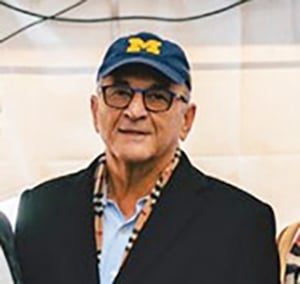
On Sunday, December 8, every single seat at Bris Avrohom—Congregation Shomrei Torah Ohel Yosef Yitzchak in Hillside—was filled with people honoring the life of community builder Danny Kahane, who passed away on December 7. Among the hundreds of family and friends was his wife, Claire, and his children, Jason and Stephanie, as well as many prominent leaders, all reflecting on the passionate and devoted man that Kahane was, and the legacy that he left behind.
Kahane was born in 1947 in Poland to parents who survived the Holocaust, shortly before his entire family moved to Tel Aviv in 1950. He was raised in a one bedroom apartment along with his sister, Batya, and served in the IDF in the late 1960s, including during the Six Day War. Kahane then emigrated to the United States after obtaining a soccer scholarship to attend LIU, with just $200 in his pocket—something which he turned into incredible lifelong success.
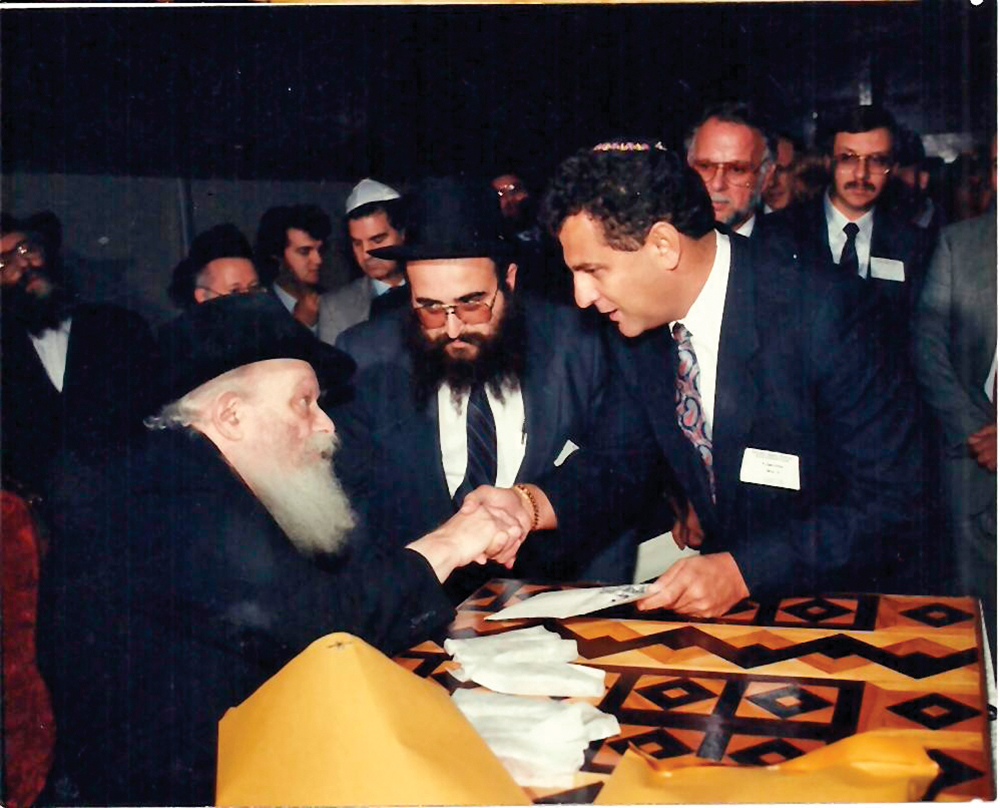
“He was the American Dream,” his daughter, Stephanie, shared at the levaya. “He used his time here to build; yes, houses and office buildings, but he built so much more than that. He built a legacy. He built a family and a business in a new country from nothing. He built communities—whenever there was a need, he was there to help fill it.”
Kahane had a noted reputation for charity: a major generosity of a humble nature, one which did not need acknowledgement. In fact, Kahane built the very synagogue where his levaya was held, among many other community centers, including Yeshivas Be’er Yitzchok in Elizabeth, a kollel named for both his own father and his father-in-law, and the Chabad Center at Rutgers University.
It was no surprise, then, that many lay leaders and rabbanim were present for Kahane’s levaya, all of whom saw Kahane grow their institutions. Among them was Rabbi Zev Reichman of East Hill Synagogue in Englewood, of which Kahane was an active member with his family; Rabbi Yossi Carlebach of Chabad at Rutgers; Rabbi Avrohom Schulman of Be’er Yitzchok, the kollel dedicated by Kahane; Rabbi Laibel Schapiro of Chabad of the Shore in Long Branch, where Kahane spent every summer; and Rabbi Mordy Kuessous of the Benaroya Sephardic Center at Congregation Ahavath Torah in Englewood. With an abundance of speeches, the rabbanim were honored with leading recitations of Tehillim for those in attendance.
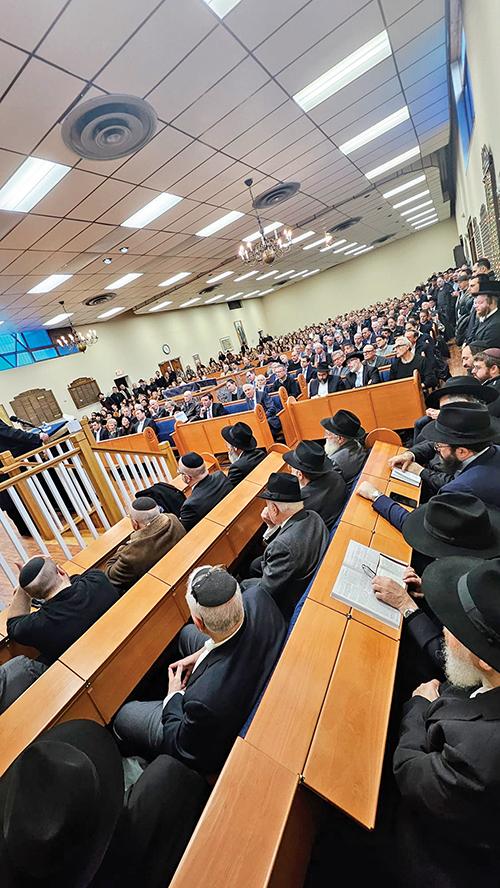
Sorely missed was Rabbi Elazar Teitz of the Jewish Educational Center (JEC) in Elizabeth, who is visiting Israel and was not able to attend. Kahane was very active at JEC, where his two children, Jason and Stephanie, attended, and was a long-time board member.
Rabbi Mordechai Kanelsky of Bris Avrohom reflected on 42 years of friendship with Kahane, whom he met at a bris in Brooklyn in 1983, just a few short years after the founding of Bris Avrohom in 1979.
“Danny was the one to convince me to move to New Jersey,” Rabbi Kanelsky shared with The Jewish Link. “I wasn’t as eager to leave Crown Heights … but he was living in Elizabeth at the time, and he wanted me to move there, especially considering the large Russian-Jewish population at the time.” Rabbi Kanelsky’s wife, Shterney, then wrote a letter to the Rebbe, Rabbi Menachem Mendel Schneerson, asking whether they should purchase a home in Crown Heights or in New Jersey. The Rebbe confirmed Kahane’s urging and clearly stated that the young couple should purchase a home in Elizabeth. Upon his arrival, Kahane not only provided the down payment for the home, but immediately purchased the synagogue building where Shomrei Torah Ohel Yosef Yitzchak still resides.
“When we entered the building after it was purchased, Danny sat us down and told us a story that brought tears to our eyes,” recalled Rabbi Kanelsky. Kahane shared that when he first arrived in America, he was not a religious man. One day, he happened to open a calendar which marked Yom Kippur, and decided he should participate in services. A nearby temple was recommended, but upon arrival, the security guard denied him and his friend entry because they didn’t have tickets to High Holiday services. As a former IDF soldier, Kahane made it clear that he would find his way into the synagogue whether he had tickets or not—and when he finally made it inside, he promised that if God would help him become successful in America, he would become religious and buy a shul where no one would ever have to buy a ticket for prayer services. “And here he was, in front of me, fulfilling his pledge: he had purchased Shomrei Torah Ohel Yosef Yitzchak.”
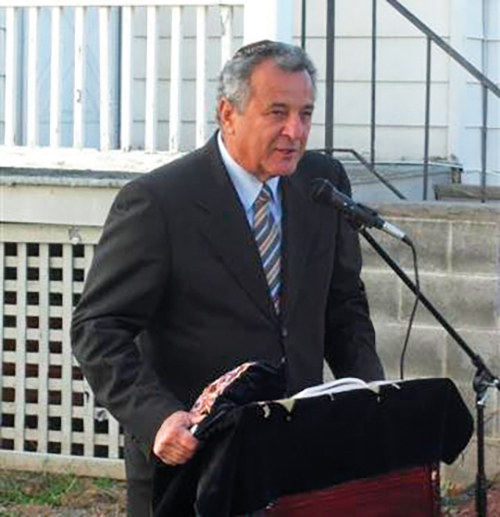
Three years later, after the building was entirely paid off, Kahane and Rabbi Kanelsky presented a framed photo of the shul to the Rebbe, and in turn, the Rebbe told him: “The shul that you built will come with you to Yerushalayim when moshiach comes.” For Kahane, it was “a real highlight,” Rabbi Kanelsky said. “The Rebbe had a special love for Danny.”
Rabbi Kanelsky described his relationship with Kahane as beyond the standard rabbi-congregant relationship. “There was never a simcha or holiday where Danny and Claire weren’t there,” he explained, also noting that Kahane provided great comfort to him and his wife after the loss of their child. “We would talk multiple times per day and see each other all the time.”
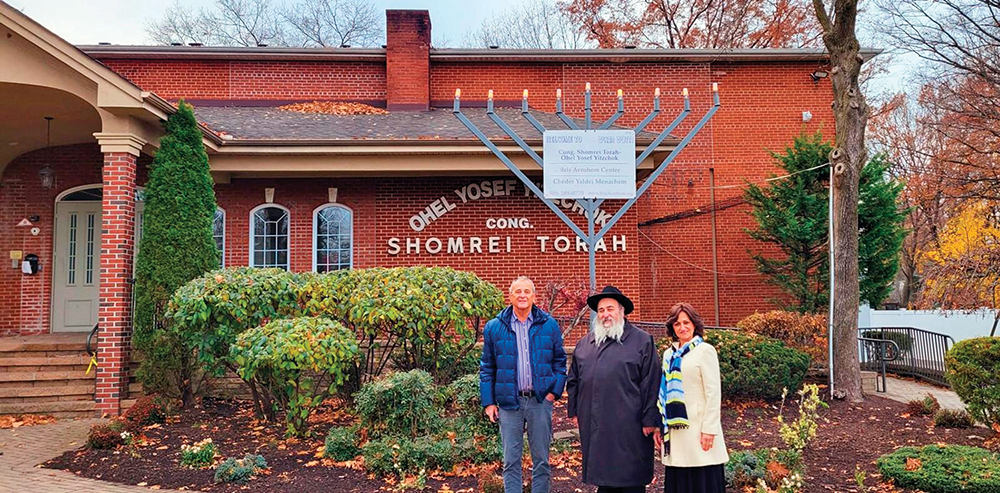
Kahane is also credited with encouraging Rebbetzin Kanelsky to open up a preschool, as well as purchasing its building and dedicating a new sefer Torah to the shul, among other communal improvements. “I could tell you enough stories to fill every single page of The Jewish Link,” said Rabbi Kanelsky. “You just don’t meet people like Danny anymore … he was truly special.”
“To know Danny Kahane was to love him,” his daughter Stephanie shared in her eulogy. “He epitomized the phrase, ‘if there’s a will there’s a way,’ and would move mountains to make things happen … there really was no one else like Danny Kahane.”








